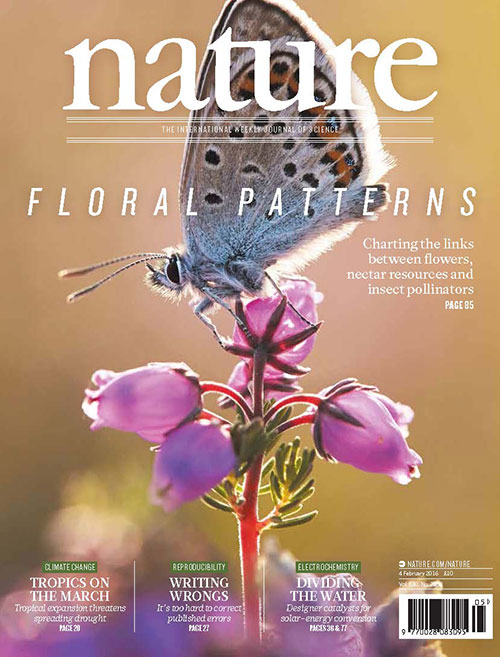Awareness of the plight of bees and other insect pollinators, both across the UK and globally, has grown in recent years. One of the main contributing factors is habitat loss and the decline in flowers that provide nectar and pollen, which are vital resources for pollinators. This was highlighted by research conducted by Mathilde Baude and colleagues from the University of Bristol, which featured on the cover of the journal Nature this February (Baude et al., 2016).
 |
| Image courtesy of Nature. |
Facilitated by generous support from the Alumni Foundation and a Grow For It Award grant, a group of students at the University of Bristol initiated a project to address this issue. Using recycled scaffolding planks from the Bristol Wood Recycling Project, they constructed two raised beds to be sown with a highly diverse mixture of native wildflowers.
 |
| Raised beds created at the University of Bristol behind the Biomedical Sciences building using recycled scaffolding planks and native wildflowers. |
Get Bristol Buzzing assisted in selecting the seed mix, which is made up of annuals and perennials of thirty-seven species (including some rare species). When complete, the planters will create over 30 m2 of rich urban pollinator habitat.
In June 2016, student volunteers prepared one of the planters with topsoil and recycled construction material from the local area. The meadow, which occupies a previously open concrete space behind the Biomedical Sciences building, is in now in bloom and buzzing with bees.
Next year, a group of student volunteers will prepare the remaining bed, ready for the summer. There are also plans to organise other events and workshops to continue to raise awareness amongst students, while sharing information on practical ways in which individuals can contribute to creating more pollinator habitat. Student volunteers will also be responsible for the ongoing maintenance of the beds.
The diverse meadows not only create habitat for pollinators and other insects, but also provide food for seed-eating birds and shelter for small animals. As well as promoting biodiversity within the campus, the meadows are sure to contribute positively to the wellbeing of staff, students and members of the public who use this space.


